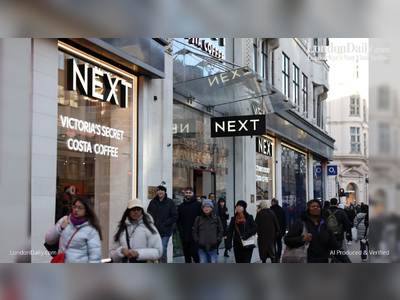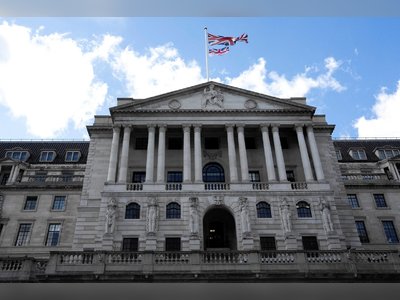UK Retail Inflation Slows as Shop Prices Fall for First Time Since Spring
Annual shop-price inflation edges down to 1.0% in October and monthly prices dip 0.3% amid sharp non-food deflation
Shop-price growth in the United Kingdom dropped to just one per cent in October, down from 1.4 per cent in September, according to data from the British Retail Consortium and research firm NIQ.
Immediately striking, prices in shops overall fell by 0.3 per cent compared with September—the first monthly decline since March.
Non-food items drove the shift, registering deflation of about 0.4 per cent year-on-year, a deeper drop from the 0.1 per cent decline seen in September.
Food inflation, however, remained elevated: overall food prices rose 3.7 per cent annually, down from 4.2 per cent the month prior.
Within that, fresh food costs climbed to 4.3 per cent from 4.1 per cent, while ambient packaged goods inflation slowed to 2.9 per cent from 4.2 per cent.
The slowdown comes amid increasingly intense competition in retail, expanded discounting and easing global commodity pressures.
The retail body noted that strong promotional activity ahead of seasonal events, along with falling sugar and confectionery prices, contributed to the overall downward pressure on shop prices.
Though this offers modest relief to consumers burdened by the cost-of-living squeeze, analysts warn that the elevated level of fresh food inflation and other essentials means many households will continue to experience strain.
From a policy standpoint, the moderation may offer positive signals to the :contentReference[oaicite:1]{index=1} and Treasury in the run-up to the autumn budget.
Retail executives cautioned, however, that any additional tax burdens on the sector could jeopardise these gains and keep prices elevated for longer.
The retail price dynamics suggest that while inflationary pressure may be easing, the cost environment for consumers remains challenging in several important categories.
Immediately striking, prices in shops overall fell by 0.3 per cent compared with September—the first monthly decline since March.
Non-food items drove the shift, registering deflation of about 0.4 per cent year-on-year, a deeper drop from the 0.1 per cent decline seen in September.
Food inflation, however, remained elevated: overall food prices rose 3.7 per cent annually, down from 4.2 per cent the month prior.
Within that, fresh food costs climbed to 4.3 per cent from 4.1 per cent, while ambient packaged goods inflation slowed to 2.9 per cent from 4.2 per cent.
The slowdown comes amid increasingly intense competition in retail, expanded discounting and easing global commodity pressures.
The retail body noted that strong promotional activity ahead of seasonal events, along with falling sugar and confectionery prices, contributed to the overall downward pressure on shop prices.
Though this offers modest relief to consumers burdened by the cost-of-living squeeze, analysts warn that the elevated level of fresh food inflation and other essentials means many households will continue to experience strain.
From a policy standpoint, the moderation may offer positive signals to the :contentReference[oaicite:1]{index=1} and Treasury in the run-up to the autumn budget.
Retail executives cautioned, however, that any additional tax burdens on the sector could jeopardise these gains and keep prices elevated for longer.
The retail price dynamics suggest that while inflationary pressure may be easing, the cost environment for consumers remains challenging in several important categories.









